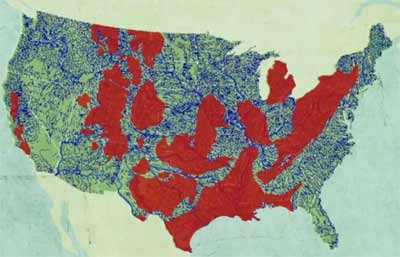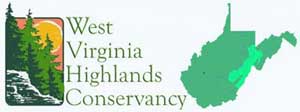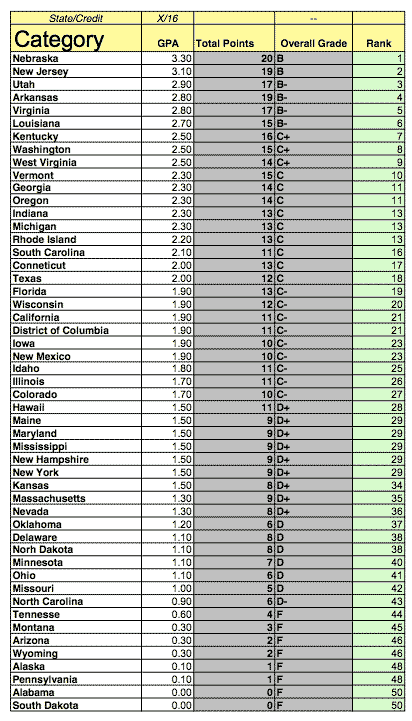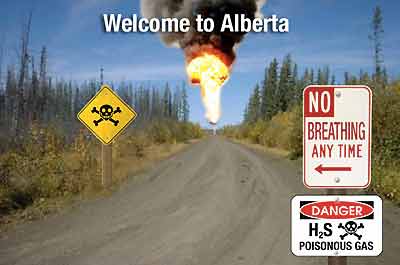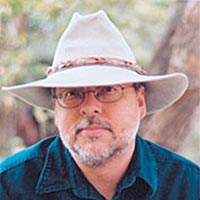Biblio
Bob and Lisa were told by their doctor to move out of their home withing 48 hours because it was too dangerous for them to stay after they were diagnosed with drilling chemicals in their blood and organs.
Videos and posting by Bluedaze Sharon Wilson.
Brandon Evans. 9/27/2010. Fight for Survival. Wise County Messenger. Online Edition.
It doesn't have to be this way. There are affordable emission controls that industry could use to prevent 90% of the emissions. These are some of the best practices least destructive practices described in DRILL RIGHT TEXAS: Best oil & gas development practices for Texas. Industry refuses to use control technology unless it is mandated.
Before you go all weird and start attacking Texas, have a look at this map and know that they are finding more shale areas everyday, everywhere, all across the globe. Shale gas is the biggest scam ever played on the human race.
Keep drilling toxics out of our drinking water.
Tell your Senators and Representatives to support the FRAC Act.
Frac Tech is one of the smaller companies mentioned in the memorandum to Members of the Subcommittee on Energy and Environment from Chairman Henry A. Waxman and Subcommittee Chairman Edward J. Markey Examining the Potential Impact of Hydraulic Fracturing. (PDF)
Frac Tech describes itself as “one of the largest and fastest growing land stimulation companies.”
Little is known about the practices of these and other small and medium sized companies that provide fracturing services across the country.
Frac Tech's CEO Dan Wilk received one of the eight letters from this Committe on February 18, 2010. They are listed in this document:
Energy & Commerce Committee Investigates Potential Impacts of Hydraulic Fracturing.
See Shale Maps of the U.S, World, Australia, China, Eastern Europe and the Middle East.
See: Jaime Adame. "Cisco's Frac Tech Grows". August 7, 2010. Abilene Reporternews Online.
Not So Fast, Natural Gas: Why Accelerating Risky Drilling Threatens America’s Water
Some energy analysts are predicting that natural gas will be the fuel of the future if advances in drilling technology allow drillers to tap into domestic shale rock formations on a large scale. But because of the impacts that the technology can have on water, natural gas could become our next energy disaster.
Food & Water Watch works to ensure the food, water and fish we consume is safe, accessible and sustainably produced.
Learn more: read about our victories.
See: Poisoned Profits
See: Blue Covenant
See: Tox Town

The West Virginia Highlands Conservancy, Friends of Blackwater, and former West Virginia State Park Chief Cordie Hudkins have taken the fight over the proposed drilling for natural gas in Chief Logan State Park to the West Virginia Supreme Court of Appeals. There they have been joined by the West Virginia chapter of the Sierra Club as well as the West Virginia Division of Natural Resources and the West Virginia Department of Energy who also oppose the drilling.
The controversy is over a proposal by Cabot Oil and Gas to drill several gas wells inside Chief Logan State Park. The Department of Environmental Protection had originally denied the permit to drill based upon a statute which it believed prohibited drilling for gas in a state park. Cabot Oil and Gas (the driller) appealed to the Circuit Court of Logan County which reversed the Department of Environmental Protection and ordered that the permit be issued.
The case also has the potential to interfere with an important source of funding for West Virginia’s parks and recreation. West Virginia receives extensive funding for its parks from the federal Land and Water Conservation Fund. A condition of that funding is that the land dedicated for park use remain so and not be converted for non-recreational use. If West Virginia allows part of Chief Logan to be converted from recreational use to minerals extraction, this would interfere with funding under this program.
Sourcewatch page provides overview including links to directors, funders, and board members.
See FAS page on Earth Systems:
"Over the next century the earth’s resilience and adaptive capabilities will be stressed by the demands of global climate change, environmental degradation, a population increase of two billion people, and the accompanying increased resource and energy demand.
These stresses will place an additional burden upon the earth’s natural systems and the processes and resources that drive these systems. Future system scarcities and imbalances represent a security concern with the potential to destabilize and weaken existing political, social, and economic structures. And as these natural systems are inherently highly interdependent, it is necessary for them to be analyzed and considered systemically.
The Earth Systems Program seeks to address these issues by developing and promoting sustainable, scientifically sound, and inclusive solutions, policies, and technological developments."
"The Federation of American Scientists (FAS) was founded in 1945 by scientists who had worked on the Manhattan Project to develop the first atomic bombs. These scientists recognized that science had become central to many key public policy questions. They believed that scientists had a unique responsibility to both warn the public and policy leaders of potential dangers from scientific and technical advances and to show how good policy could increase the benefits of new scientific knowledge."
FAS works to challenge excessive government secrecy and promote public oversight with their FAS Project on Government Secrecy. Part of the project includes the distribution of the free electronic newsletter Secrecy News, which provides informal coverage of new developments in secrecy, security and intelligence policies.
Includes video interview with Hans Bethe on Atomic weapons.
Please note that information taken from Wikis should be verified using other, more reliable sources. It is a good place to start research, but because anyone can edit a Wiki, we do not recommend using it in research papers or to obtain highly reliable information.
It will be interesting to see how the environmentally sensitive French react to the widespread use of the controversial hydraulic drilling technology known as “fracking” on their home turf.
Toreador Resources, a Texas oil company, has been awarded drilling rights to 750,000 acres of the Paris Basin, its licenses stretching for hundreds of kilometers from St Dizier, on the edge of the Champagne region, to Montargis, just south of the royal palace of Fontainebleau according to an article in The Australian.
Craig Mackenzie, chief executive of the Dallas based Toreador Resources is reported as saying the company wants to start drilling three pilot wells early in 2010, at a cost of US$30million, and to be producing oil from them by the end of the year.
Gas drilling companies such as Halliburton say the gas drilling technique known as hydraulic fracturing, or fracking, is safe, but opponents contend it pollutes groundwater with dangerous substances.
Now, new evidence has emerged possibly linking natural gas drilling to groundwater contamination. ProPublica journalist Abrahm Lustgarten reports federal officials in Wyoming have found that at least three water wells contain chemicals used in hydraulic fracturing.
Pennsylvania environment officials are racing to clean up as much as 8,000 gallons of dangerous drilling fluids after a series of spills at a natural gas production site near the town of Dimock last week...
...The incident is the latest in a series of environmental problems connected to Cabot’s drilling in the Dimock area. Last winter, drinking water in several area homes was found to contain metals and methane gas that state officials determined leaked underground from Cabot wells. And in the spring, the company was fined for several other spills, including an 800-gallon diesel spill from a truck that overturned.
Site includes extensive background information.

Irena Salina's award-winning documentary investigation into what experts label the most important political and environmental issue of the 21st Century - The World Water Crisis.
Salina builds a case against the growing privatization of the world's dwindling fresh water supply with an unflinching focus on politics, pollution, human rights, and the emergence of a domineering world water cartel.
Interviews with scientists and activists intelligently reveal the rapidly building crisis, at both the global and human scale, and the film introduces many of the governmental and corporate culprits behind the water grab, while begging the question "Can anyone really own water?"
Beyond identifying the problem, Flow also gives viewers a look at the people and institutions providing practical solutions to the water crisis and those developing new technologies, which are fast becoming blueprints for a successful global and economic turnaround.
See: Jeannette Catsoulis. Sept. 12, 2008. The New York Times. "The War Between Public Health and Private Interests".
See: Cory Doctorow . Apr 7, 2008. BoingBoing.net. "For Love of Water: infuriating and incredible documentary about world's water-crisis".
See: World-Renowned Scientist Dr. Theo Colborn on the Health Effects of Water Contamination from Fracking
See: Clean Water Action
See: WATER: Rulings Restrict Clean Water Act, Foiling E.P.A.
and Supreme Court Restricts Clean Water Act
See: WATER | That Tap Water Is Legal but May Be Unhealthy
See: WATER | FRONTLINE: Poisoned Waters
See: Drinking Water: Understanding the Science and Policy behind a Critical Resource
See: Connie Watson, CBC Radio | Feb. 4, 2003. "Sell the rain: How the privatization of water caused riots in Cochabamba, Bolivia".
See: SERC (State Environmental Resource Center). 2004. "The Meaning of Privatization."
Implications of Privatization of Water Utilities
[Provides] examples where privatized water utilities have posed risks of rate hikes, negative economic impacts, inadequate customer service, and harm to natural resources...
Tempers and dangers are ramping up in the gas field we call home.
"Ah, for the good old days in the springtime of the Barnett Shale boom, when the words “royalty check” were enough to get homeowners to sign away their mineral rights and everyone still thought the 3 a.m. screech of drilling equipment was just the sound of money.
When no one thought that wells could possibly send property values tumbling or turn well water brown, before drilling sites and pipelines had started leaking, burping, and blowing up. When there were no neighborhood groups ganging up to demand higher royalties, tighter controls, or — say it ain’t so — trying to stop wells outright...
...Even gas company officials admit that the boom is drawing more and more inexperienced workers to drilling sites. “Veteran crews are being divided up and filled with people who have no experience whatsoever working rigs, laying pipe, and such,” said pipeline company manager Jerry Holsworth.
And so accidents are increasing. At least two people have been killed in Barnett Shale operations thus far.
Read the results.
Here's why they did the survey.
There are probably no more important reforms to government than the ones that came with the passing of the Federal Freedom of Information ("FOI") Act. The law recognized in no uncertain terms that if government is to be of the people, by the people and for the people, the decisions and actions of the government must be open for review by the people.
The states, for the most part, followed the federal government in adopting open records laws.
Unfortunately, state FOI laws have proven to be almost uniformly weak and easy to undermine. The weakness and haphazard construction of the state laws has resulted in an information gap that significantly effects the citizenry's ability to examine even the most fundamental actions of government.
| BGA survey of FOI laws |
In the course of numerous investigations, Better Government Association investigators have been refused in our requests to review state contracts and performance measures, denied everything from documentation of ambulance response times to the documents reviewed when making budgeting decisions, and ignored by officials in nearly every major office at one time or another. Our experience told us that the FOI laws simply do not work very well in Illinois.
As a result of our hands-on experience with Illinois' lack of responsiveness, the BGA decided to find out where we stood in relationship to other states. We found that no one had completed any sort of national analysis of FOI laws, and that Illinois' relative strengths and weaknesses could not be measured without creating a new instrument to study the problem and without an analysis of each state's statutory provisions for FOI.
I was looking for the original article and ran this search on Google Scholar.
Analysis conducted by the Better Government Association
Staff: Terrance A. Norton, James M. Newcomb & Jay E. Stewart
Interns: Erika Washington and David Hall
Alabama, Alaska, Arizona, Pennyslvania, Montana, South Dakota, Tennessee, and Wyoming all got a bit fat F.
David Beers. "Tar Sands Expert Nikiforuk to Speak at UBC." The Tyee. 2010-09-09.
Tyee writer-in residence will reveal 'Who Regulates Canada's Oil Patch, and for Whom?'
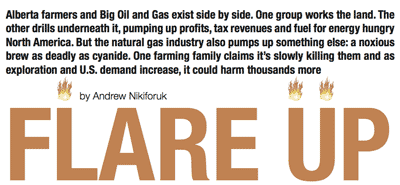
“Sour gas is one of the most dangerous, toxic substances known to man,” he said. “Having a sour gas well 800 metres from your home is like having a child molester an in urban community. You never know when things are going to go wrong.”
Charlie Smith. "Andrew Nikiforuk: EnCana pipeline attacks are not ecoterrorism." Straight.com. 2008-10-17.
You can read another interview with Nikiforuk about his Tyee project here and find his work, so far, here.
See: The Globe and Mail. "Andrew Nikiforuk wins Rachel Carson medal." July 22, 2009.
See: Society of Environmental Journalists.SEJ's Rachel Carson Environment Book Award."
During last year's presidential campaign, Richard B. Cheney acknowledged that the oil-field supply corporation he headed, Halliburton Co., did business with Libya and Iran through foreign subsidiaries. But he insisted that he had imposed a "firm policy" against trading with Iraq.
"Iraq's different," he said...
Cheney has offered contradictory accounts of how much he knew about Halliburton's dealings with Iraq. In a July 30, 2000, interview on ABC-TV's "This Week," he denied that Halliburton or its subsidiaries traded with Baghdad.
"I had a firm policy that we wouldn't do anything in Iraq, even arrangements that were supposedly legal," he said. "We've not done any business in Iraq since U.N. sanctions were imposed on Iraq in 1990, and I had a standing policy that I wouldn't do that."
Cheney modified his response in an interview on the same program three weeks later, after he was informed that a Halliburton spokesman had acknowledged that Dresser Rand and Ingersoll Dresser Pump traded with Iraq. He said he was unaware that the subsidiaries were doing business with the Iraqi regime when Halliburton purchased Dresser Industries in September 1998.
See: Halliburton on Fracking Resource Guide.
Global Policy Forum is an independent policy watchdog that monitors the work of the United Nations and scrutinizes global policymaking. GPF works particularly on the UN Security Council, the food and hunger crisis, and the global economy. We promote accountability and citizen participation in decisions on peace and security, social justice and international law.
GPF gathers information and circulates it through a comprehensive and heavily-visited website, as well as through frequent media interviews. We play an active role in NGO networks and other advocacy arenas. We organize meetings and conferences and we publish original research and policy papers.
GPF analyzes deep and persistent structures of power and dissects rapidly-emerging issues and crises. GPF's work challenges mainstream thinking and questions conventional wisdom. We seek egalitarian, cooperative, peaceful and sustainable solutions to the world's great problems.
See: FCPA Blog | UK Court Won't Block Telser Extradition
See: Fracking Resource Guide | Halliburton (updated)
See: Halliburton's Interests Assisted by White House - Los Angeles Times







